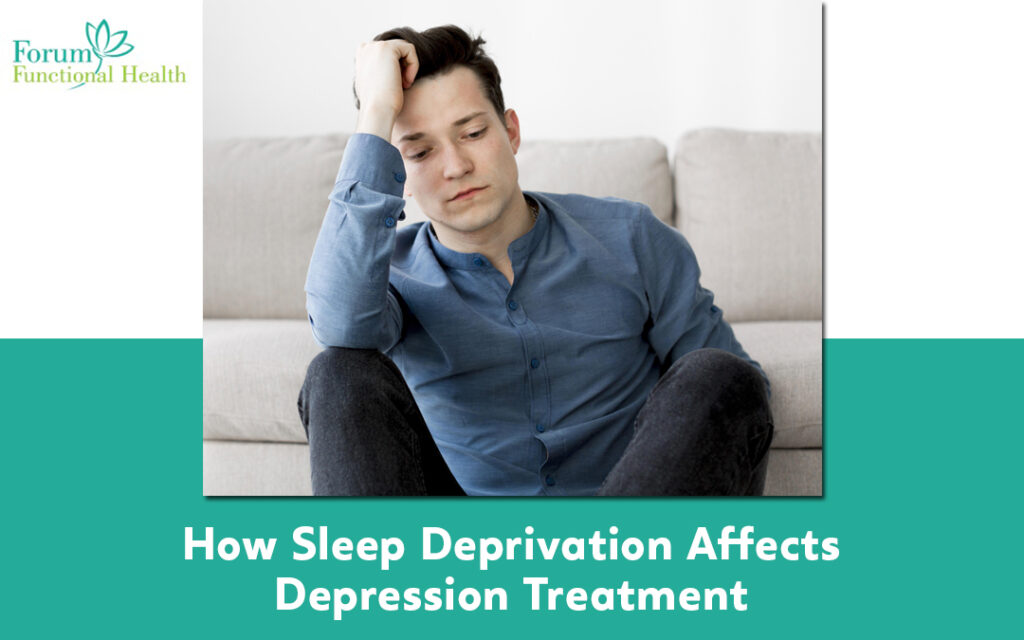How Sleep Deprivation Affects Depression Treatment

The relationship between sleep and depression is one that cannot be understated. Sleep deprivation, whether chronic or occasional, can significantly exacerbate symptoms of depression and hinder effective management strategies. Understanding the profound impact of sleep deprivation on depression management is crucial for individuals striving to improve their mental well-being.
The Link between Sleep and Depression
To comprehend the impact of sleep deprivation on depression management, it’s essential to grasp the intricate interplay between sleep and mood regulation. Sleep plays a vital role in emotional processing, cognitive function, and overall mental health. When deprived of adequate sleep, the brain’s ability to regulate emotions becomes compromised, leading to increased vulnerability to negative mood states, such as depression.
Effects of Sleep Deprivation on Depression Symptoms
Sleep deprivation can intensify various symptoms of depression, making it more challenging for individuals to cope with their condition effectively. Common effects of sleep deprivation on depression symptoms include heightened irritability, persistent sadness, decreased motivation, and impaired concentration. Moreover, insufficient sleep can exacerbate feelings of hopelessness and exacerbate suicidal ideation, posing significant risks to individuals struggling with depression.
Biological Mechanisms at Play
The impact of sleep deprivation on depression management extends beyond mere psychological factors, delving into intricate biological mechanisms within the body. Disruptions in sleep patterns can dysregulate neurotransmitter activity, particularly serotonin and dopamine, which are crucial for mood regulation. Additionally, sleep deprivation can trigger inflammatory responses in the body, contributing to neurobiological changes associated with depression.
The Vicious Cycle of Sleep Deprivation and Depression
One of the most challenging aspects of managing depression amidst sleep deprivation is the creation of a vicious cycle wherein each exacerbates the other. Individuals experiencing depression may find it difficult to fall asleep or maintain restful sleep due to racing thoughts, anxiety, or intrusive negative emotions. Conversely, insufficient sleep can worsen depressive symptoms, leading to a continuous cycle of sleep disturbances and mood disturbances.
Strategies for Managing Sleep Deprivation and Depression
While navigating the complex relationship between sleep deprivation and depression can be daunting, several strategies can help individuals better manage their symptoms:
Establishing a Consistent Sleep Routine: Prioritize regular sleep schedules, aiming for seven to nine hours of quality sleep each night.
Creating a Relaxing Sleep Environment: Designate your bedroom as a tranquil space conducive to restorative sleep, minimizing exposure to electronic devices and stimulating activities before bedtime.
Practicing Relaxation Techniques: Engage in relaxation practices such as deep breathing exercises, progressive muscle relaxation, or mindfulness meditation to alleviate stress and promote relaxation before sleep.
Seeking Professional Support: Consult with a healthcare provider or mental health professional to explore personalized treatment options, including therapy, medication, or alternative interventions tailored to address both sleep and mood disturbances.
The Importance of Comprehensive Assessment and Treatment
While antidepressants may be prescribed as a treatment option for depression, it’s crucial to acknowledge the limitations of this approach without addressing underlying root causes. At Forum Functional Health Center, we prioritize comprehensive assessment and treatment of depression by evaluating three main body systems: hormonal, gastrointestinal, and detoxification.
Each of these systems plays a pivotal role in influencing mood and overall well-being, and dysfunction within one can significantly impact the others. By addressing underlying imbalances and deficiencies, we aim to restore holistic health and empower individuals to reclaim their lives from the grips of depression.
If you’re struggling with depression and seeking a comprehensive approach to address underlying factors contributing to your symptoms, we invite you to schedule an appointment at our office. Our dedicated team at Forum Functional Health Center is committed to helping you achieve optimal health, happiness, and a life free from the burdens of depression and its accompanying challenges.
